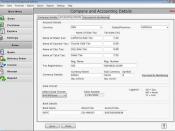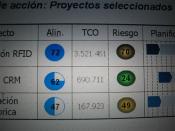Advantages:
1)Take all cost elements into consideration, because it extends the procurement to the whole life cycle of product within a firm.
2)Reflects the real cost of the purchasing rather than the pure acquisition.
3)It helps to define a rational purchasing policy for the buyer, for instance, how to allocate the purchasing volume, and to whom, and etc.
4)It can be a tool to evaluate outsourcing deals.
5)Can be used in negotiations with suppliers, by making visible some of the committed costs induced by that supplier.
Disadvantages:
1)It is a complex system, and not easy to implement. Especially, if a company has a lot of purchasing items.
2)It is a static system, and any changes in internal/external environment, e.g. maintenance cost, might influence the outcome, which, however, cannot be implemented immediately.
3)Deterministic model that relies on mostly uncertain data.
a. It is almost impossible to accurately allocate the occurred cost to each specific element, which is the basis for TCO calculation.
b.It is almost impossible to forecast the future expense or income for a specific purchasing.
c.Complex to setup and requires input from all departments involved in the entire life cycle of the product/investment.
d.Only accurate if plenty of historical data is available.
e.Often misses or underestimates the 'taking out of service' cost
4)TCO system has impact on selected vendors, and their reaction might influence the whole system. However, their reaction cannot be precisely predicted.
5)The system ignores some other elements beyond mathematical measurement. For instance, business risk, opportunity cost, loss from negotiation with eliminated suppliers, and etc.
6)Waste of time: look at all steps in life cycle, rather than concentrating immediately on areas with largest impact on TCO
2.Some elements missing, additional elements? For typical production companies.
1)Management expenses related to purchasing;
2)Cost related...



Unusual
I have no idea who would need this information, but if someone does, I guess they could get it here. I think you could have organized this information better anyway.
0 out of 0 people found this comment useful.